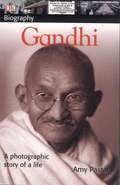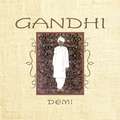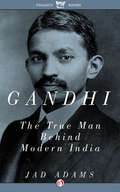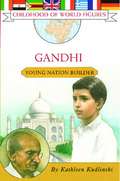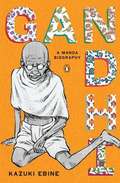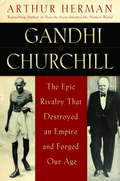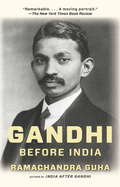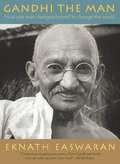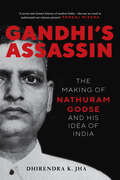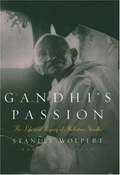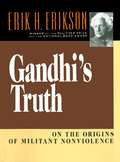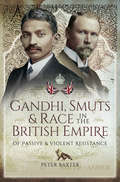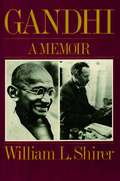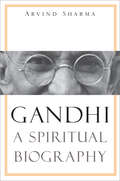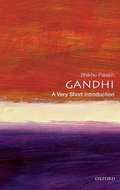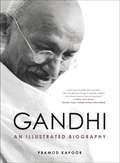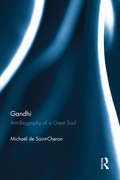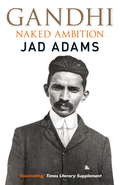- Table View
- List View
Gandhari Ki Atmakatha: गांधारी की आत्मकथा
by Manu Sharmaगांधारी, अपने पुत्रों को समझाओ। द्वारकाधीश की माँग बहुत कम है। अब पाँच गाँव से और कम क्या हो सकता है? अब वे मेरे समझाने की सीमा में नहीं रहे। जब पानी सिर से ऊपर बहने लगा तब आप उसे ने के लिए कहते हैं! आपसे अनेक अवसरों पर ओंर अनेक बार मैंने कहा है कि यह दुर्योधन बिना लगाम का घोड़ा हो गया है, उसपर नियंत्रण करिए; पर उस समय आपने बिलकुल ध्यान ही नहीं दिया। आज वह बात इस हद तक बढ़ गई कि यह घोड़ा जिस रथ में जुता है उसीको उलट देना चाहता है, तब आप मुझसे कहते हैं कि घोड़े की लगाम कसो! आपके पुत्रों ने पांडवों पर क्या-क्या विपत्ति नहीं ढाई! हर बार उन्हें समाप्त करने का प्रयत्न करते रहे। मैं हर बार तिलमिलाती रही और हर बार आपका मौन उन्हें प्रोत्साहन देता रहा। किसलिए? इस सिंहासन के लिए, जो न किसीका हुआ है और न किसीका होगा? इस धरती के लिए, जो आज तक न किसीके साथ गई है और न जाएगी? इस राजसी वैभव के लिए, जिसने हमें अहंकार के अतिरिक्त और कुछ नहीं दिया है? इसे आप अच्छी तरह जान लीजिए कि यदि कोई वस्तु हमारे साथ अंत तक रहेगी और इस संसार को छोड़ देने के बाद भी हमारे साथ जाएगी तो वह होगा हमारा धर्म, हमारा कम।'आपने उसीकी उपेक्षा की। मोह-माया, ममता, पुत्र-प्रेम और लोभ से ही घिरे रहे। इसी लोभ ने आपके पुत्रों को पांडवों के प्रति ईर्ष्यालु बनाया। अब जो कुछ हो रहा है, वह उसी ईर्ष्या का शिशु है। अब आप ही उसे अपने गोद में खिलाइए। मैं उसका जिम्मा नहीं लेती। मैंने कई बार कहा है कि हमारे दुर्भाग्य ने हमें संतति के रूप में नागपुत्र दिए हैं। वे जब भी उगलेंगे, विष ही उगलेंगे। इसलिए नागधर्म के अनुसार समय रहते हुए उनका त्याग कर दीजिए।
Gandhi
by DemiM.k.Gandhi known by his followers as Mahatama--or great soul--was born in India in 1869 and grew up to become one of the most influential and well-respected political and social leaders the world has ever known. An adamant idealist and a courageous thinker, Gandhi identified himself with the struggles of the common people. He won independence for India and is called "Father of India". Nelson Mandela and Martin Luther King were followers of Gandhi's teachings.
Gandhi
by Jad Adams"Provocative. Adams strips away Gandhi's saintly aura and explores the duality . . . of India's most famous leader." --Financial Times Jad Adams traces the course of Gandhi's multi-faceted life, and the development of his religious, political, and social thinking over seven tumultuous decades: from his comfortable upbringing in a princely state in Gujarat; his early civil rights campaigns; his leadership through civil disobedience in the 1920s and 1930s that made him a world icon; and finally to his assassination by a Hindu extremist in 1948, only months after the birth of independent India. An elegant and masterly account of one of the seminal figures of twentieth-century history, Adams presents for the first time the true story behind the man whose life may truly be said to have changed the world.
Gandhi
by Kathleen KudlinskiThe man we remember simply as Gandhi was born Mohandas Gandhi in India in 1869. From an early age he was made keenly aware of the rigid Hindu caste system of his country, and was heavily influenced by his mother's ability to fast as a way to control her urges. Mohandas was married at the age of thirteen and continued his education, though he struggled as a student. He also struggled to find himself and to keep his moral center intact. At college in London, and then later at work in South Africa and India, Gandhi was appalled at the abject poverty he discovered and by the widespread denial of civil liberties and political rights he encountered. He ultimately dedicated his life to the struggle for fundamental human rights for all Indians. Read all about the fascinating early years and eventual accomplishments of this inspiring leader.
Gandhi
by Kazuki EbineThe life of a true twentieth-century hero told in a vibrant graphic novel format. Through his quietly powerful leadership and influential use of nonviolent resistance in India's struggle against the British Raj, Mahatma Gandhi became one of the most revered figures of the modern era. While history has recorded Gandhi's words and deeds, the man himself has been eclipsed by maxims of virtuosity that seem to have little resonance in our everyday lives. In Gandhi, the third volume in our exciting new manga biography series, created in conjunction with Emotional Content, Kazuki Ebine combines a gripping narrative with stunning illustrations to share Gandhi's inspiring and deeply human story with a whole new generation of readers. Developed in conjunction with Emotional Content. .
Gandhi & Churchill: The Rivalry That Destroyed An Empire and Forged Our Age
by Arthur HermanMohandas Gandhi and Winston Churchill: India's moral leader and Great Britain's greatest Prime Minister. Born five years and seven thousand miles apart, they became embodiments of the nations they led. Both became living icons, idolized and admired around the world. Today, they remain enduring models of leadership in a democratic society. Yet the truth was Churchill and Gandhi were bitter enemies throughout their lives. This book reveals, for the first time, how that rivalry shaped the twentieth century and beyond. For more than forty years, from 1906 to 1948, Gandhi and Churchill were locked in a tense struggle for the hearts and minds of the British public, and of world opinion. Although they met only once, their titanic contest of wills would decide the fate of nations, continents, peoples, and ultimately an Empire. Here is a sweeping epic with a fascinating supporting cast, and a brilliant narrative parable of two men whose great successes were always haunted by personal failure - and whose final moments of triumph were overshadowed by the loss of what they held most dear.
Gandhi Before India
by Ramachandra GuhaThe first volume of a magisterial biography: the definitive portrait of the life and work of one of the most abidingly influential--and controversial--men in modern history. Here is a revelatory work of biography that takes us from Gandhi's birth in 1869 through his upbringing in Gujarat, his 2 years as a student in London, and his 2 decades as a lawyer and community organizer in South Africa. Ramachandra Guha has uncovered a myriad of previously untapped documents, including: private papers of Gandhi's contemporaries and co-workers; contemporary newspapers and court documents; the writings of Gandhi's children; secret files kept by British Empire functionaries. Using this wealth of material in a brilliantly nuanced narrative, Guha describes the social, political and personal worlds in which Gandhi began his journey to become the modern era's most important and influential political actor. And Guha makes clear that Gandhi's work in South Africa--far from being a mere prelude to his accomplishments in India--was profoundly influential on his evolution as a political thinker, social reformer and beloved leader.
Gandhi Bharat Se Pahle: गांधी भारत से पहले
by Ramchandra Guha1893 में, जब मोहनदास गांधी ने दक्षिण अफ्रीका के लिए समुद्री यात्रा की, वह एक संक्षिप्त वकील थे जो भारत में खुद को स्थापित करने में विफल रहे थे। इस उल्लेखनीय जीवनी में, रामचंद्र गुहा का तर्क है कि गांधी ने डायस्पोरा में जो दो दशक बिताए, वे महात्मा के निर्माण थे। यहीं पर उन्होंने उस दर्शन और तकनीक को गढ़ा जो अंततः ब्रिटिश साम्राज्य को नष्ट कर देगा। चार महाद्वीपों में अभिलेखीय शोध के आधार पर, यह पुस्तक असंतुष्ट पंथों के साथ गांधी के प्रयोगों, उनकी दोस्ती और दुश्मनी और एक पति और पिता के रूप में उनकी विफलताओं की पड़ताल करती है। गांधी भारत से पहले कहानी बताती है कि कैसे उन्होंने एक क्रॉस-क्लास और अंतर-धार्मिक गठबंधन को लामबंद किया, एक नस्लवादी शासन के खिलाफ उनकी लड़ाई में अहिंसा का संकल्प लिया। गहन शोध और खूबसूरती से लिखी गई यह पुस्तक आधुनिक भारत के महानतम व्यक्ति के बारे में हमारी समझ और प्रशंसा को मौलिक रूप से बदल देगी।
Gandhi and Marx
by K. G. MashruwalaWhat can be a more fascinating study to us in the present age than that of a comparison between the ideologies of Gandhi, the great soul (mahatma), and Marx, the great thinker (mahamuni)? If the last hundred years or so of the social life of humanity were boiled away, the residue will most likely be these two great names. Lenin is ingested in Marx. And the shadow of Tolstoy spreads over Gandhi. The two ideologies stand face to face, each bent on swallowing up the other. — VINOBA
Gandhi for Kids: His Life and Ideas, with 21 Activities
by Ellen MahoneyConnecting Gandhi's ideas and his life's work to contemporary issues this useful resource for parents and teachers makes Gandhi relevant for kids today. Packed with historic images, the book includes informative sidebars; a time line, glossary, and resource section, along with 21 activities that illuminate Gandhi's life, environment, and ideas.
Gandhi the Man
by Eknath EaswaranThis is the moving story of a nonviolent hero, illustrated with more than 70 photographs, and told by a highly respected author who grew up in Gandhi's India.Gandhi's life continues to inspire and baffle readers today. How did an unsuccessful young lawyer become the Mahatma, the "great soul" who led 400 million Indians in their struggle for independence from the British Empire? What is nonviolence, and how does it work?Easwaran answers these questions and gives a vivid account of the turning points and choices in Gandhi's life that made him an icon of nonviolence. Easwaran witnessed at firsthand how Gandhi inspired ordinary people to turn fear into fearlessness, and anger into love. He visited Gandhi in his ashram to find out more about this human alchemy, and during the prayer meeting watched the Mahatma absorbed in meditation on the Bhagavad Gita, the scripture that was the wellspring of his spiritual power.Quotations highlight Gandhi's teachings in his own words, and sidebar notes and a chronology, new to this updated edition, provide historical context.This book conveys the spirit and soul of Gandhi - the only way he can be truly understood.
Gandhi's Assassin: The Making of Nathuram Godse and His Idea of India
by DHIRENDRA JHAThe life of Nathuram Godse, the man who shot GandhiDhirendra Jha's deeply researched history places Nathuram Godse's life as the juncture of the dangerous fault lines in contemporary India: the quest for independence and the rise of Hindu nationalism.On a wintry Delhi evening on 30 January 1948, Nathuram Godse shot Gandhi at point-blank range, forever silencing the man who had delivered independence to his nation. Godse&’s journey to this moment of international notoriety from small towns in western India is, by turns, both riveting and wrenching. Drawing from previously unpublished archival material, Jha challenges the standard account of Gandhi&’s assassination, and offers a stunning view on the making of independent India.Born to Brahmin parents, Godse started off as a child mystic. However, success eluded him. The caste system placed him at the top of society but the turbulent times meant that he soon became a disaffected youth, desperately seeking a position in the infant nation.In such confusing times, Godse was one of hundreds, and later thousands, of young Indian men to be steered into the sheltering fold of early Hindutva, Indian nationalism. His association with early formations of the RSS and far-right thinkers such as Sarvakar proves that he was not working alone. Today he is considered to be a patriotic hero by many for his act of bravery, despite being found guilty in court and executed in 1949.
Gandhi's Life In His Own Words
by Krishna KripalaniMy uniform experience has convinced me that there is no other God than Truth. And if every page of these chapters does not proclaim to the reader that the only means for the realization of Truth is ahimsa, I shall deem all my labour in writing these chapters to have been in vain. And, even though my efforts in this behalf may prove fruitless, let the readers know that the vehicle, not the great principle, is at fault.— M. K. Gandhi
Gandhi's Passion: The Life and Legacy of Mahatma Gandhi
by Stanley WolpertMahatma Gandhi, through his indomitable will and selfless determination, transformed himself into a model of courage and integrity for India's people to emulate in their nonviolent struggle for political power. More than half a century after his death, Gandhi continues to inspire millions throughout the world. Yet modern India seems to have abandoned much of his nonviolent vision, joining the nuclear arms race. Inspired by recent events in India, Stanley Wolpert offers this subtle and profound biography of India's "Great Soul". Wolpert compellingly chronicles the life of Mahatma Gandhi from his early days as a child of privilege to his humble rise to power and his assassination at the hands of a man of his own faith. This trajectory, like that of Christ, was the result of Gandhi's passion: his conscious courting of suffering as the means of reaching divine truth. From his early campaigns to end discrimination in South Africa to his leadership of a people's revolution to end the British imperial domination of India, Gandhi emerges as a man of inner conflicts conquered by his political genius and moral vision. The sweet reasonableness of his "Great Soul", combined with the steel of his unyielding opposition to intolerance and oppression, would inspire India like no leader since the Buddha -- creating a legacy that would encourage Martin Luther King, Jr., Nelson Mandela, and other global leaders to demand a better world through peaceful civil disobedience.
Gandhi's Printing Press
by Isabel HofmeyrAt the same time that Gandhi, as a young lawyer in South Africa, began fashioning the tenets of his political philosophy, he was absorbed by a seemingly unrelated enterprise: creating a newspaper. Gandhiâe(tm)s Printing Press is an account of how this project, an apparent footnote to a titanic career, shaped the man who would become the world-changing Mahatma. Pioneering publisher, experimental editor, ethical anthologistâe"these roles reveal a Gandhi developing the qualities and talents that would later define him. Isabel Hofmeyr presents a detailed study of Gandhiâe(tm)s work in South Africa (1893âe"1914), when he was the some-time proprietor of a printing press and launched the periodical Indian Opinion. The skills Gandhi honed as a newspapermanâe"distilling stories from numerous sources, circumventing shortages of typeâe"influenced his spare prose style. Operating out of the colonized Indian Ocean world, Gandhi saw firsthand how a global empire depended on the rapid transmission of information over vast distances. He sensed that communication in an industrialized age was becoming calibrated to technological tempos. But he responded by slowing the pace, experimenting with modes of reading and writing focused on bodily, not mechanical, rhythms. Favoring the use of hand-operated presses, he produced a newspaper to contemplate rather than scan, one more likely to excerpt Thoreau than feature easily glossed headlines. Gandhiâe(tm)s Printing Press illuminates how the concentration and self-discipline inculcated by slow reading, imbuing the self with knowledge and ethical values, evolved into satyagraha, truth-force, the cornerstone of Gandhiâe(tm)s revolutionary idea of nonviolent resistance.
Gandhi's Truth: On the Origins of Militant Nonviolence
by Erik H. EriksonIn this study of Mahatma Gandhi, psychoanalyst Erik H. Erikson explores how Gandhi succeeded in mobilizing the Indian people both spiritually and politically as he became the revolutionary innovator of militant non-violence and India became the motherland of large-scale civil disobedience.<P><P> Winner of the National Book Award<P> Pulitzer Prize Winner
Gandhi, Smuts & Race in the British Empire: Of Passive & Violent Resistance
by Peter BaxterTowards the end of 1906, a meeting took place between two emerging giants of the age, Mohandas K. Gandhi and General Jan Christian Smuts. United under the same empire, but separated by distance and culture, Smuts was born in the Cape Colony, and Gandhi in Porbandar, a duchy of the Indian province of Gujarat. Both, however, went on to study law in Britain, and while developing a great admiration for the institutions of empire, each man also suffered his own particular crisis of faith. From their widely dispersed origins, Gandhi and Smuts collided over the issue of race and equality in a turbulent province of the empire, each attempting to hold the British to their stated ideals. This insightful book explores attitudes to race, and belonging, in an age when the English speaking peoples straddled the globe, and sought to impose on all of their subject races, basking under the radiance of Britannia, a common ideal of parity, equal opportunity and free movement.
Gandhi: 'Hind Swaraj' and Other Writings
by Anthony J. ParelHind Swaraj is Mahatma Gandhi's fundamental work. Not only is it key to understanding his life and thoughts, but also the politics of South Asia in the first half of the twentieth century. Celebrating 100 years since Hind Swaraj was first published in a newspaper, this centenary edition includes a new preface and editor's introduction, as well as a new chapter on 'Gandhi and the 'Canonical aims of life''. The volume presents a critical edition of the 1910 text of Hind Swaraj, fully annotated and including Gandhi's own Preface and Foreword (not found in other editions). Anthony J. Parel sets the work in its historical and political contexts and analyses the significance of Gandhi's experiences in England and South Africa. The second part of the volume contains some of Gandhi's other writings, including his correspondence with Tolstoy and Nehru.
Gandhi: A Memoir
by William L. ShirerRecalling his friendship and conversations with the late Indian leader, William Shirer presents a portrait of Gandhi that spotlights his frailties as well as his accomplishments.As a young foreign correspondent, William Shirer reported briefly on Gandhi—but the year was 1931, when India's struggle for independence peaked and Gandhi scored perhaps his greatest political success. The year before, he had led a 200-mile march to the sea to pick up a lump of salt—a violation of the British salt tax; and this symbolic act (like—he reminds Shirer—the Boston Tea Party) had propelled the Indian masses into nonviolent civil disobedience on a large scale. To check its spread, Gandhi had been arbitrarily imprisoned. Now he was out of prison and negotiating with the British viceroy: if Gandhi would call off the civil-disobedience campaign and attend an upcoming London conference, the British would make concessions too.These, however, were so limited and vague that many Indian nationalists regarded Gandhi's agreement as a sell-out; but Shirer underlines history's judgment of its wisdom with Gandhi's own words. More importantly, he notes, the British had finally been forced "to deal with an Indian leader as an equal." Along these lines, Shirer also witnessed British discomfiture at Gandhi's arrival—complete with loin cloth, spinning wheel, and goat’s milk; he saw the sensation Gandhi caused in London—and heard him address Lancashire millhands thrown out of work by the Indian boycott of British cotton. And he saw him at home, subsisting on four-hours' sleep and "frenzied acclaim." This book is sure to press upon readers the worldwide force of Gandhi's example. —Kirkus Reviews
Gandhi: A Spiritual Biography
by Arvind SharmaIn his Autobiography, Gandhi wrote, "What I want to achieve--what I have been striving and pining to achieve these thirty years--is self-realization, to see God face to face. . . . All that I do by way of speaking and writing, and all my ventures in the political field, are directed to this same end." While hundreds of biographies and histories have been written about Gandhi (1869-1948), nearly all of them have focused on the political, social, or familial dimensions of his life. Very few, in recounting how Gandhi led his country to political freedom, have viewed his struggle primarily as a search for spiritual liberation.Shifting the focus to the understudied subject of Gandhi's spiritual life, Arvind Sharma retells the story of Gandhi's life through this lens. Illuminating unsuspected dimensions of Gandhi's inner world and uncovering their surprising connections with his outward actions, Sharma explores the eclectic religious atmosphere in which Gandhi was raised, his belief in reincarnation, his conviction that morality and religion are synonymous, his attitudes toward tyranny and freedom, and, perhaps most important, the mysterious source of his power to establish new norms of human conduct. This book enlarges our understanding of one of history's most profoundly influential figures, a man whose trust in the power of the soul helped liberate millions.
Gandhi: A Very Short Introduction
by Bhikhu ParekhMohandas Karamchand Gandhi (1869-1948) was one of the few men in history to fight simultaneously on moral, religious, political, social, economic, and cultural fronts. During his time as a lawyer in South Africa he developed his strategy of non-violence: the idea of opposing unjust laws by non-violent protest. He led the Indian National Congress party in three major campaigns against British rule, each culminating in his arrest. In Gandhi, a short introduction to Gandhi's life and thought, Bhikhu Parekh outlines both Gandhi's major philosophical insights and the limitations of his thought. Written with extensive access to Gandhi's writings in Indian languages to which most commentators have little or no access, Parekh looks at Gandhi's cosmocentric anthropology, his spiritual view of politics, and his theories of oppression, non-violent action, and active citizenship. He also considers how the success of Gandhi's principles were limited by his lack of coherent theories of evil, and of state and power. Gandhi's view of man as ascetic allows no room for expressions of the cultural, artistic, or intellectual. Furthermore, he was so hostile to modern civilization that he was unable to appreciate its complex dialectic or offer a meaningful narrative. Nevertheless, Gandhi's life and thought had an enormous impact on the Indian nation, and he continues to be widely revered--known before and after his assassination as Mahatma, the Great Soul.
Gandhi: An Illustrated Biography
by Pramod KapoorRarely seen images and rigorous research provides fascinating insight into one of the most revered figures in modern Indian history. Gandhi is an intimate history of the evolution of a mischievous, fun-loving boy into the Mahatma. From his schooling and early marriage in Kathiawar to his first brushes with the grandeur of London; from his chance employment for a legal case in South Africa to a train ride in Pietermaritzburg that led to his first fight for equality; from a relatively unsuccessful lawyer to a globally celebrated crusader for human rights-Gandhi was that rare rebel who redefined the meaning of mass resistance for generation to come. The chronological text and rarely seen photographs bring out his unique complexities for a new generation of readers.
Gandhi: Anti-Biography of a Great Soul
by Michaël de Saint-CheronThis book is not just another biography of Gandhi. It is valuable because it offers us a French view--- and Jewish too perhaps---- of a man and times so familiar to us and yet which acquires another dimension as it is represented through another culture. There are eloquent accounts in this book of philosophers like Ramakrishna and Vivekananda who influenced Gandhi’s thought and life. Rather than political events, Michaël de Saint-Chéron holds up the force and courage of a man who became a prophet in a blood-thirsty century. Interestingly, the author points out that it is only India and the Middle East which has given the world the two mother religions of Hinduism and Judaism. Neither China nor Europe, two major cultures, have produced a world religion. The book is further enriched by a discussion on Hindu mysticism and the concept of ‘love’ in Judaism. The author also looks at how Gandhi has played a major role on shaping French intellectuals such as Andre Malraux. At the end however, a central dilemma, and a painful one to the work, concerns Gandhi’s silence on the Holocaust. This book will be of interest to scholars working on Gandhian studies, Indian philosophy and Judaism, and to readers of politics, ethics and history.
Gandhi: Naked Ambition
by Jad AdamsThe pre-eminent political and spiritual leader of India's independence movement, pioneer of non-violent resistance through mass civil disobedience, and the man honoured in India as 'father of the nation', Mohandas K. Gandhi has inspired civil rights and liberation movements the world over.Yet he was also a man of many contradictions: a lifelong pacifist whose treatment of his wife and sons bordered on cruelty; a self-denying ascetic who preached the virtues of chastity in marriage yet experienced a high degree of intimate physical female contact; a political radical whose resistance to racism and appreciation of the value of all religions strike a thoroughly modern note, but whose vision of India was of an almost medieval village nation.In Gandhi: Naked Ambition, Jad Adams delineates Gandhi's searing ambition, including his relentless recreation of his own image, from London dandy to naked wise man; his ruthless sacrifice of his family for his principles; and his role in the tragedy of partition.Using material only recently made available, including the most explicit account yet of Gandhi's sexual experiments with the wives of his followers and his teenage grand-nieces, Jad Adams' accessible and challenging biography reveals the man behind the Mahatma.

